The 11 Best Assessment Tools for Business Coaches and Consultants
1 comments
1 comments
Every coach or consultant I speak with knows this simple fact: time is money.
Those same coaches spend a disproportionate amount of time evaluating leads that come through their site, or working overtime to retain high-value clients.
What if I told you there was a way to save time AND deliver more for your existing clients? It’s not fantasy, it’s an assessment. Assessment tools can make a massive difference in your business, helping you close higher-quality leads and retain better clients in the process.
There’s a plethora of assessment tools out there, so let’s dig into the best assessment tools available and how to use them to your advantage.
Assessments come in all sorts of shapes and sizes, but they really pop when you structure them less like a form to fill out and more like an experience your leads or clients actually want to engage with.
Assessment tools are powerful because of how they’re designed. They can offer fun, dynamic, and interesting user experiences that prompt leads to share a wealth of detail with often minimal effort.
I like to break assessment tools for coaches into two categories:
There’s a lot to unpack for each of these categories, so I’ll walk you through them next.
What if I told you that there was a way to:
It’s not a dream, it’s an assessment!
An assessment tool turns curiosity into action — inviting prospects to share their goals, challenges, and motivations in a way that feels natural and engaging. Maybe it’s a quick quiz that sizes up their leadership style, or an interactive calculator that reveals the ROI of your coaching packages. The possibilities are endless.
When you weave assessment tools like these directly into your sales process, you attract warmer leads, offer immediate value, and position yourself as a coach who’s both structured and invested in client success.
A good example is Neil Patel’s “website analysis” form. His company collects high-quality leads with more than the usual information about them, and those leads get a mini website analysis. Win-win!
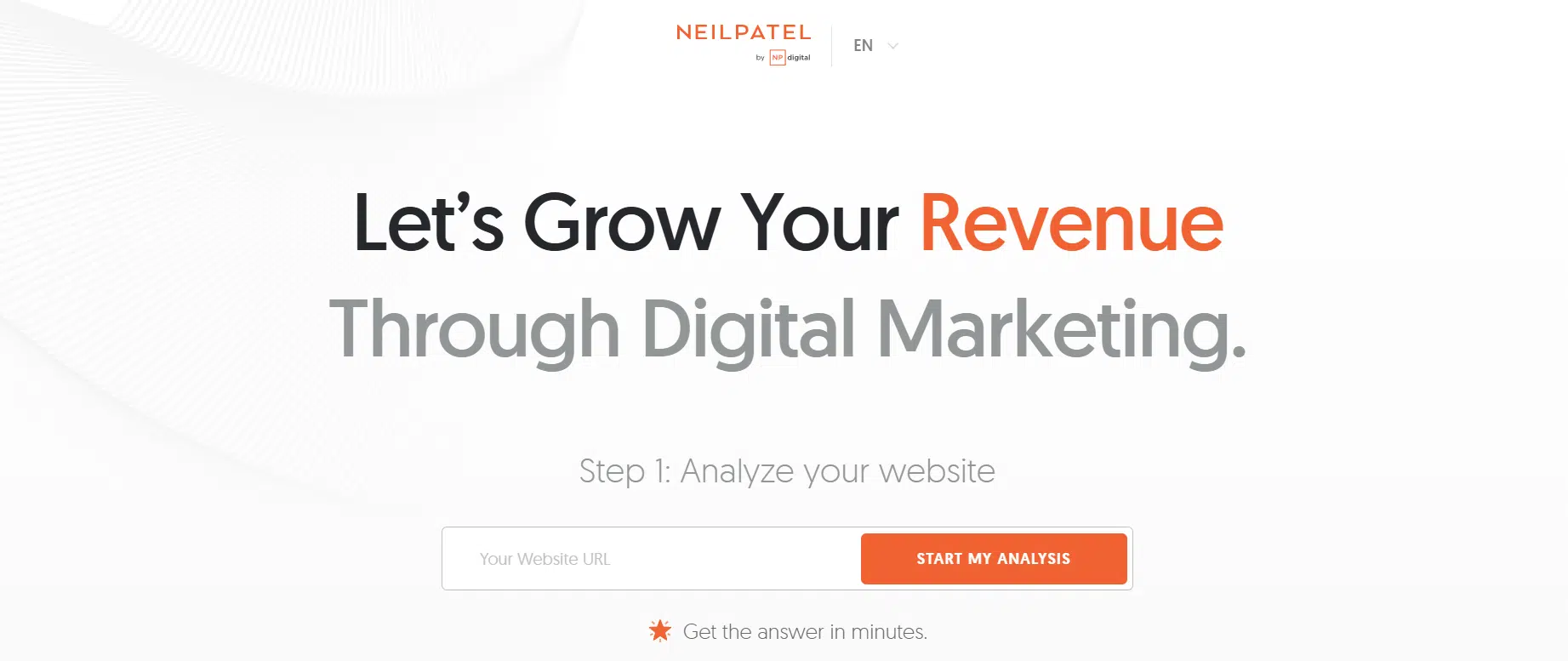
Salivating over the possibilities? My favorite tools to help you achieve this are:
I’ll walk you through each of these tools so you can select your favorite!
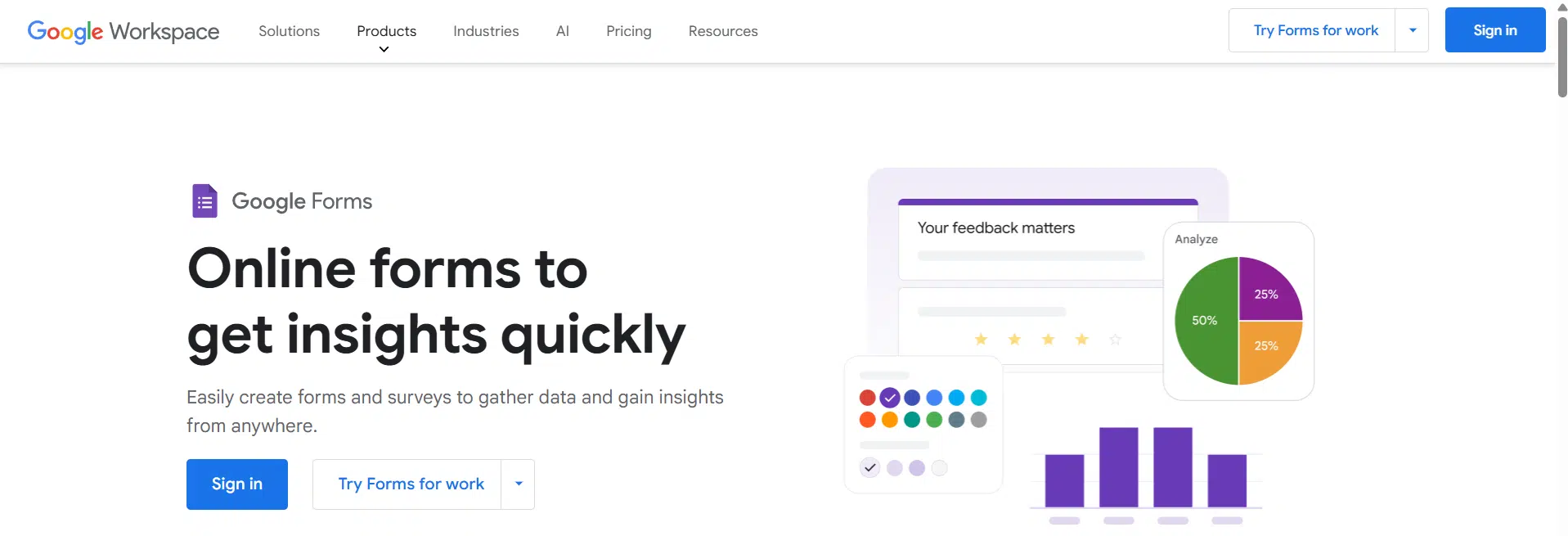
Need a basic assessment tool? Think of Google Forms as the entry-level workhorse.
Google Forms is free, simple, and gets the job done with minimal fuss. You can structure Google Forms with a mix of multiple-choice questions and short-answer prompts that encourage your prospects to provide detailed, valuable information about their needs, which you can then use to determine which of your services is the best fit, or decide whether they’re a lead worth chasing at all.
Google Forms’ biggest advantage is its simplicity and seamless integration with Google Sheets for tracking responses. That said, it lacks the polish and advanced features of paid tools, which may allow you to do more with design, functionality, or branding.
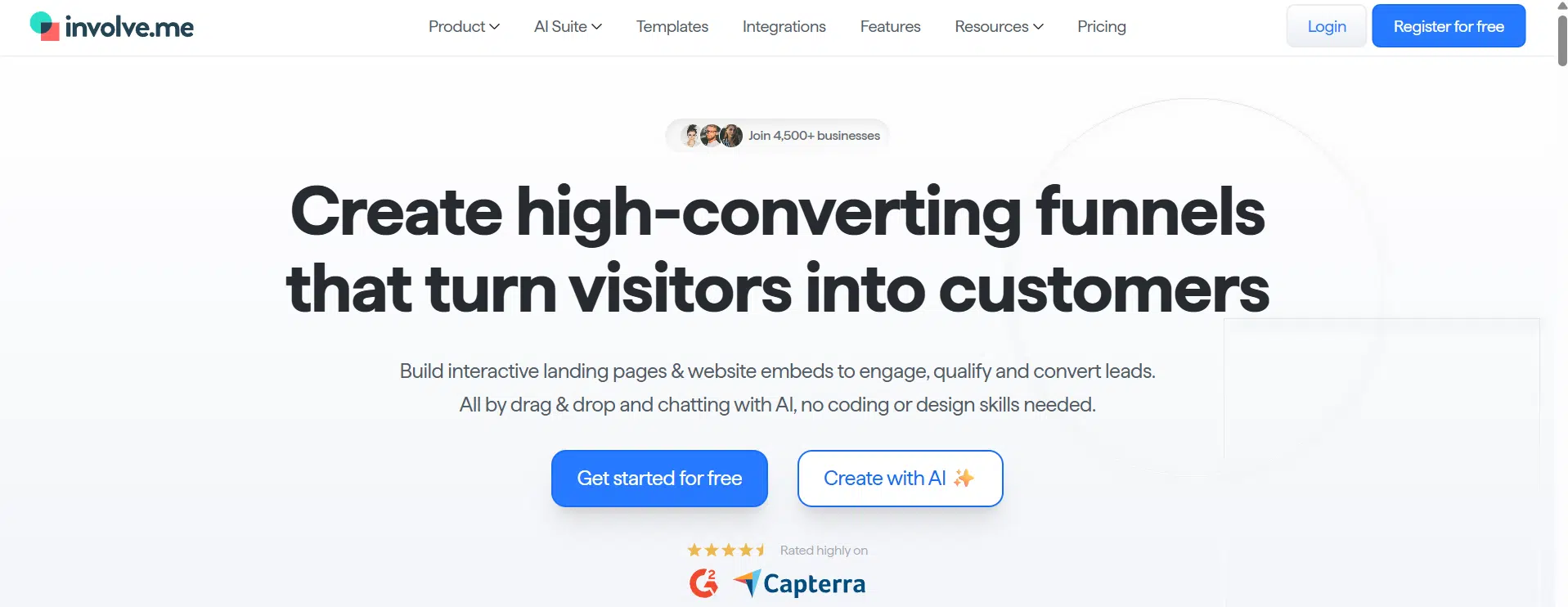
Want something more premium than a free Google Form?
Involve.me takes the notion of “drag and drop” to a whole new level. It features a helpful AI integration tool that assists you with designing interactive quizzes, calculators, and surveys. The finished product can be published as a standalone landing page or integrated directly into your website.
This platform doesn’t create interactive content just for the fun of it, either. Involve.me sees assessment tools for what they are: valuable conduits for lead qualification. It automatically funnels qualified leads into your CRM and integrates with popular email and marketing platforms.
Voila! A lead magnet that doesn’t require coding or advanced design skills.
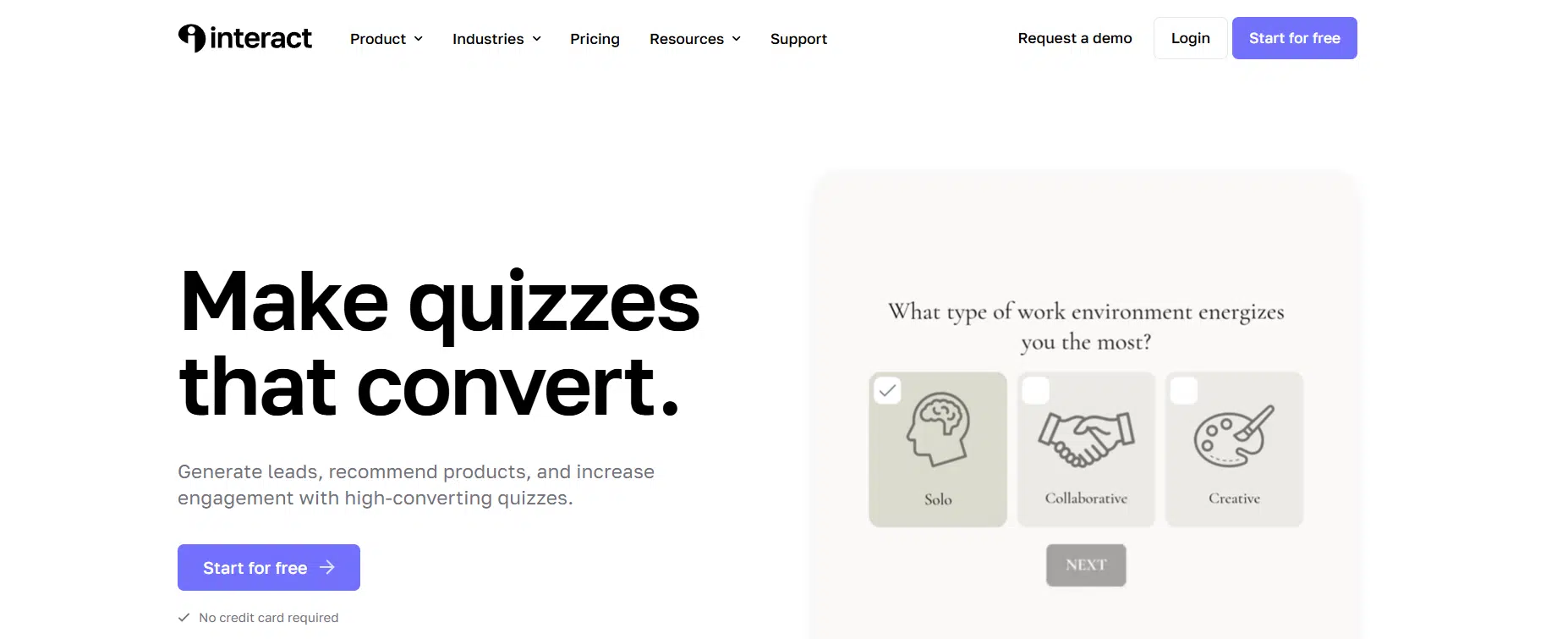
Interact leans into the psychology of fun and curiosity, making it ideal for top-of-funnel lead generation where you want high engagement.
Suppose you’re a business coach offering leadership workshops or tailored programs for C-suite executives. With Interact, you can create a “What’s Your Leadership Style?” quiz that evaluates key skills, traits, and competencies needed for success in executive roles. Participants’ answers not only reveal their leadership strengths, but also allow you to segment leads and offer targeted programs, turning a simple quiz into a seamless lead-generation and client-education engine.
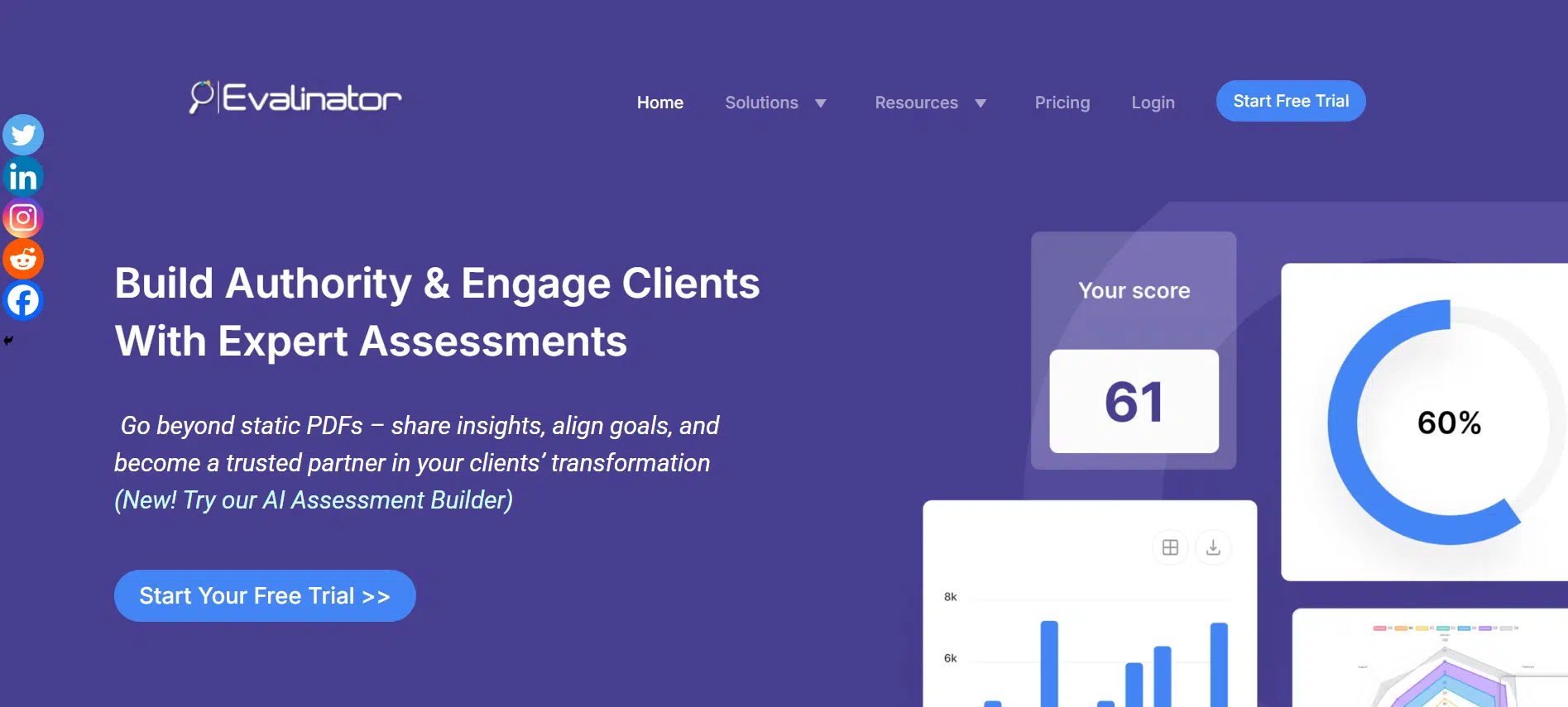
Evalinator is purpose-built for consultants and coaches who want to anchor conversations in client transformation. Think diagnostic tools rather than quizzes, with a heavy emphasis on metrics and tracking progress.
For example, a leadership coach could build a “Team Effectiveness Scorecard” that doesn’t just spit out a result but also provides structured feedback and benchmarks for improvement. This helps keep client discussions focused on their goals and progress.
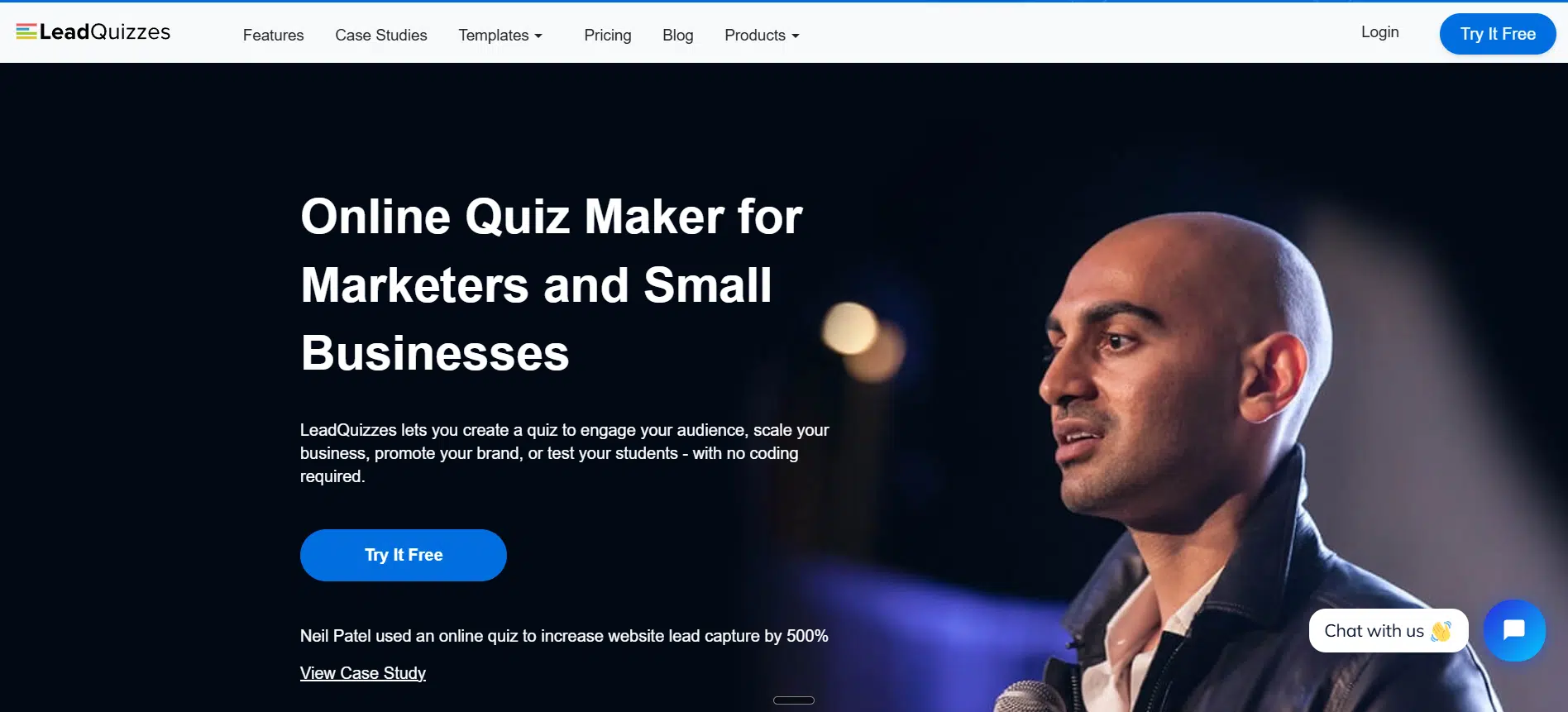
LeadQuizzes is built for scale and flexibility, giving you multiple ways to capture leads without being tied to just one format. You can embed quizzes directly on your website, launch them as standalone landing pages, or even trigger them as pop-ups based on visitor behavior. That makes it a great option if you want to experiment with different points of entry in your funnel or run A/B tests across channels.
Let’s say you’re a marketing coach; you could build a “How Strong Is Your Personal Brand?” quiz and deploy it in a blog pop-up, on LinkedIn, and in an email campaign, then compare which channel delivers the most qualified leads.
LeadQuizzes comes with a unique analytics dashboard to show you completion rates, drop-off points, and conversion performance so that you can refine both your content and your funnel strategy. It’s a versatile platform for coaches who want to get creative with how they deploy assessment tools.
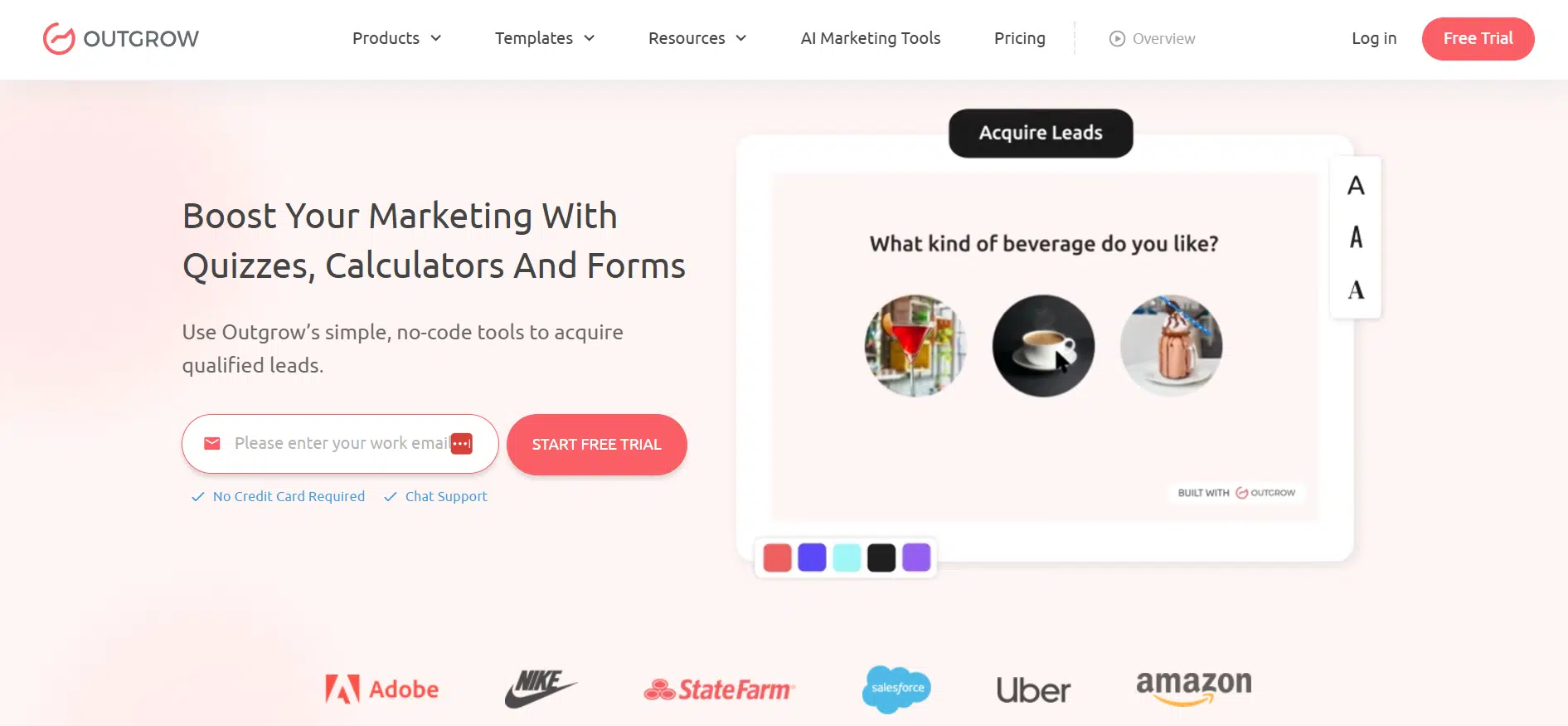
Want to launch an interactive calculator? Try Outgrow.
Outgrow is best known for its calculators and advanced assessments that help prospects see, in real time, the costs of inaction or the benefits of improvement.
Picture a productivity coach offering a “How Much Time Are You Losing Each Week?” calculator that outputs a dollar value on wasted hours — instantly framing the problem you solve. Or a business consultant running a “Profitability Growth Scorecard” that highlights specific weaknesses prospects can’t ignore. Outgrow is a strong fit for coaches and consultants who sell results-driven programs and want their assessments to underline ROI in a concrete, data-backed way.

Static web forms are so 2010; instead, you can create a fully interactive (and beautiful) questionnaire with Typeform.
Rather than feeling like a survey, it feels like a dialogue, leading to a more engaging user experience and a high completion rate. This makes it ideal for personal branding and relationship-focused coaches who want assessments to feel less transactional. For example, a life coach could use a Typeform intake to ask reflective, open-ended questions that set the tone for a coaching relationship.
The only downsides are access and cost.
Typeform is essentially just a quiz builder unless you purchase its most expensive tier, which is the Business plan. Only the Business Plan gives you the maximum number of responses per month and Typeform’s conversion tracking tools.
These tools are all handy for collecting new leads, but you can also use assessments to help manage client relationships. I’ll share those next!
You can use assessments to collect and qualify leads, but there are other types of assessments you can use to retain those leads as high-quality clients.
The right assessment tools provide deeper insight into how clients think, work, and grow — helping tailor your approach, unlock breakthroughs, and build lasting progress. Assessment tools do more than just gather data; they’re conversation starters, progress trackers, and a way to demonstrate tangible value.
Some of the most effective tools for coaches are:
Read on for a breakdown of some of the most effective frameworks, as well as practical tools coaches and consultants can use to implement them.
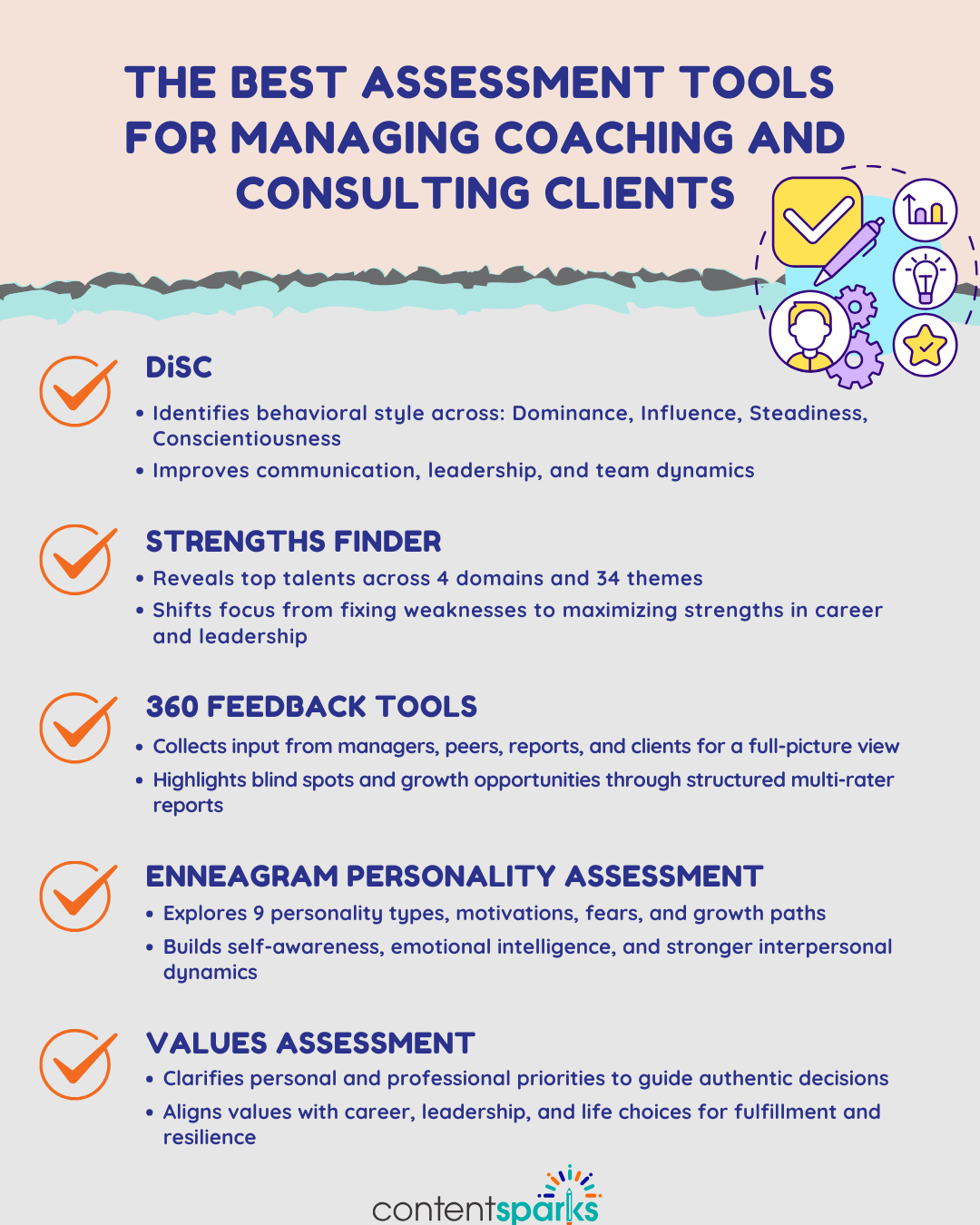
DiSC is a classic behavioral assessment you can use to better understand and evaluate your clients.
The DiSC assessment evaluates behavioral style across four dimensions:
DiSC helps clients understand how they interact with others, make decisions, and respond to conflict. Coaches often use DiSC to improve communication, strengthen leadership skills, and align team dynamics.
Online platforms like Everything DiSC administer the assessment. Tony Robbins’ DiSC tools also run the assessment free of charge, and let you send assessments digitally, automatically generate reports, and track client progress over time.
Officially known as CliftonStrengths because it was created by psychologist Don Clifton, the former chairman of the analytics giant Gallup, this assessment tool identifies an individual’s top talents based on an evaluation of four primary strength domains:
Within those four domains, the tool examines an additional 34 corresponding themes.
StrengthsFinder is designed to focus on what individuals naturally do best rather than where they struggle. Coaches use it to shift conversations from “fixing weaknesses” to “maximizing strengths.” This tool can be powerful in career coaching, leadership development, performance improvement, and team dynamics.
Gallup maintains an online platform to administer CliftonStrengths and sends out reports and development resources that coaches can integrate into session planning.
Want a more holistic and in-depth view of your client?
Try a 360-degree assessment. 360-degree feedback tools gather input from managers, peers, direct reports, and sometimes customers, giving a holistic view of a client’s skills, behaviors, and leadership effectiveness. This approach uncovers blind spots and highlights growth opportunities.
Platforms like Leadership Circle Profile (LCP) and SurveyMonkey Enterprise 360 allow you to collect multi-rater feedback, visualize trends, and provide structured reports. LCP must be administered by a certified provider, but its 360-degree self-assessment tool is free and can be given to clients at any time.
If you want to gain a deeper understanding of your clients' personalities, the Enneagram assessment is a good choice.
The Enneagram explores nine core personality types, each with its own motivations, fears, and growth paths. Unlike simpler typologies, it digs into deeper patterns of behavior and self-awareness. Coaches often use the Enneagram to help clients explore emotional intelligence, navigate interpersonal dynamics, and break unhelpful patterns.
The Enneagram Institute administers the assessment online, free of charge. Coaches can share these results before sessions, use them to guide discussions, or integrate them into personal development plans.
Values assessments help clients clarify their personal and professional priorities — what truly drives fulfillment and decision-making. For coaches, this is foundational work: when clients make choices aligned with their values, they’re more motivated, resilient, and satisfied.
Values assessments can also inform leadership decisions, career transitions, or team alignment initiatives, providing a clear framework for making choices that feel authentic and sustainable.
A widely used tool is the Barrett Values Centre Personal Values Assessment (PVA). This assessment helps clients identify their core values, understand where they may be out of alignment, and explore strategies for living and working in ways that reflect those priorities. The test is available online through the official website for a small fee.
Between these 11 tools, which should you choose for your business?
The truth is, there’s no right answer. Typeform may work wonders for a marketing coach and fall flat for a CEO coach. DiSC could work well for an executive coach and be a waste of time for a social media marketing freelancer.
You should use this guide as a jumping-off point to choose the right tools for YOUR business and YOUR clients. My advice is to start with your clients and work backwards:
These questions can help you make the right decision for you and for your clients, and that means longer and more successful client relationships, which means a happier and more successful you.
Choosing the right assessment tools can transform the way you attract clients, engage with them, and prove your value over time. But as any coach or consultant knows, assessment tools are just one piece of the bigger puzzle of running an online business.
With so many moving parts — from marketing to client management to growth strategies — it can feel overwhelming to keep everything organized. That’s why I put together the Content Sparks Business Toolkit: a curated list of the exact tools I use (and recommend) to help grow your practice and run it smoothly.
The toolkit includes best practices that can be implemented daily to start transforming your business immediately. Other tools and recommendations are tailor-made for different stages of your coaching or consultancy practice’s growth.
Enjoy!

Tags
Who knew coaching could be such a numbers game? These tools are amazing for making sure youre not just selling dreams, but quantifiable results – because lets face it, showing a potential client a How Much Time Are You Losing Each Week? calculator is like offering a proof of concept for your value. Its brilliant for those of us who love data more than small talk, turning hesitant leads into clients who cant deny the ROI of their own growth. Just be careful – using too many assessment tools might make your sales process look less like a human connection and more like a high-stakes behavioral experiment!